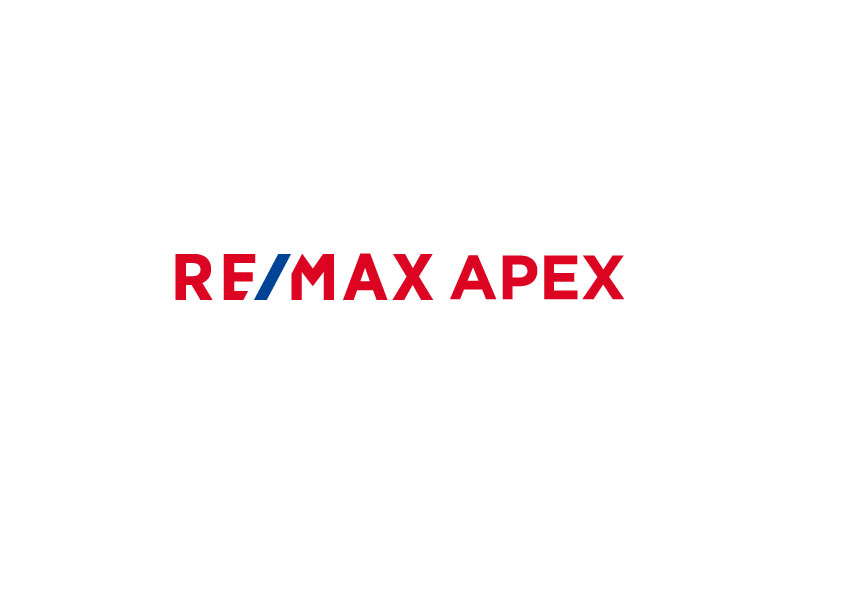What to Expect
To tie up the series Different Financing Options (Mortgage Options) Pt. 1 and Different Financing Options (Mortgage Options) Pt. 2, we decided to breakdown the mortgage loan process for home purchases in Japan.
Again, our breakdown will hopefully be simple and easy to follow just as the different financing options series attempted to be.
The breakdown will be a general breakdown, granted we do understand each case and course of action may differ.
What’s First?
Typically, most buyers will search for properties first. The usual course of action is to look online to find potential properties.
We recommend prior to looking online at properties and scheduling a viewing, figure out how much you can borrow and or what monthly payment plan suits your situation the best.
There are a few ways to figure this out;
- Consult with your bank
- Consult with a lender
- Consult with a mortgage broker
There is a shortcut to finding out how much your maximum monthly repayment may be.
Take your annual income and allot 30% to 35% of your annual income to loan payments. The 30% to 35% will include all loan payments you may have. This will include any student loans, credit card debt, and car loans. Also, the 30% to 35% allotment will include the principal and interest payment against the loan(s).
A shortcut to finding out how much you may be qualified to borrow would be to use a loan calculator you can find online, all banks have a mortgage simulator on their site, or a loan app you can download on your phone.
Either way, if financing is involved the bank or lenders will be involved. If you have the time and sometimes the patience, you might as well get the conversation started right from the start.
Having an understanding of your budget, maximum you are qualified to borrow or the amount for monthly payments you feel most comfortable, will make the property search much easier and smoother.
When Should I Get my Pre-Approval?
Let’s say you find your desired home, either it be a single family house or a condominium, and are ready to make an offer. Majority of the time, the pre-approval process will be done after making a formal offer. Unlike other parts of the world, Japan goes by the “first come first serve” bases, ordering the offers in the order they are received. If the second offer is higher than the first, the seller will allow the first buyer to match the second offer.
There are some sellers who will not accept an offer without being pre-approved first. We recommend getting your pre-approval from your lender prior to making an offer. Having an understanding how much the lender is willing to lend to you for desired property will make the real estate contracting process a bit smoother. There are cases where the lender will not allow for you to borrow your desired amount. In such cases, this will give you time to decided the next course of action without the pressures of deciding a contract date and going into the contracting process.
Granted, there are more instances now where the seller will pick the best offer in situations with multiple offers. Attaching your pre-approval letter to the formal offer will make your offer standout against the others.
So, How do I get Pre-Approved?

Naturally, you will need to fill-out the Mortgage Loan Application form for pre-approvals from your bank or lender.
Your bank will require a specific set of documents to attach with your application which we will breakdown below.
Required Documents For Pre-Approval:
- Identification Cards: copies of your driver’s license or health insurance card and your residence card.
- Proof of Income: a copy of at the least one year of your Tax Withholding Slip from the previous year. This will differ from banks and lenders, but generally copies of your Tax Withholding Slips for the last three years will be requested.
- For the Self Employed: copies of your Final Tax Returns for the last three years.
- The Director or CEO of your Company: proof of income mentioned above and your Corporate Financial Reports for the past three business years.
- Property Description: either it be the sales pamphlet from the developer, the property overview sheet, a document which has the details for the property.
- Floor Plan/ Building Layout: if not provided in the sales pamphlet or property overview sheet.
- Real Estate Registry for the Land: dated within the last three months.
- This will not be needed or available for condominiums with condominium rights.
- Real Estate Registry for the Building
- This will not be available for new construction.
- Land Survey: or Land Map which was issued within three months.
Other Documents which may be needed:
- Having Outstanding Loans or Debts:
- A copy of your payment schedule or debt balance. Possibly copies of both will be requested.
- Re-Financing:
- A copy of your payment schedule.
- A copy from your account book, passbook, or downloaded online from your current lender (one year worth).
- Guarantor: in the case a guarantor is used (not a guarantor company this is separate), a copy of his or her identification cards mentioned above.
- Any family member’s income included (for example your spouse’s) in the bank’s calculations will become the joint guarantor.
After providing the documents needed with your application, you should receive your results within a week. The bank or lender will give you a phone call to verbally give you your results, and mail you the pre-approval letter as well.
Now that you are pre-approved, you can confidently go into the sales contract with the seller. In the sales contract, there will be a clause which allows you to cancel the sales agreement without penalty if your Mortgage Loan Applications are denied. Any deposit or earnest money paid to the seller will be returned.
Mortgage Loan Application
The sales agreement between the buyer and seller must be executed before you can apply for your mortgage loan. Within the time period stated in the sales contract, you will need to be approved for your loan.
Your bank or lender will require additional documents which we will breakdown below.
Required Documents for your Loan Application:
- A Signed Consent form regarding Personal Information
- An application for Group Life Insurance Credit for Major Illnesses, and a Health Checklist: this will be a requirement from your bank or lender to have an insurance policy (in most instances).
- Depending on your health and age, a physical from your doctor may be required.
- Residence Certificate (issued within three months): this document will be provided from your local city or ward office.
- For those with a family, a residence certificate with the entire family included.
- Proof of Tax Payments: at least one year of your Tax Certificate, but typically the last three years. This document can be acquired at your local city or ward office.
- For the Self Employed: Income Tax Payment Certificate and Tax Certificate for the last three years.
- The Director or CEO of your Company: Corporate Tax Payment Certificate and Corporate Tax Certificate for the last three years.
- A Copy of the Real Estate Sales Contract: signed and stamped by all parties involved (buyer(s), seller(s), agencies involved).
- A Copy of the Explanation of Important Matters: signed and stamped by all parties involved (buyer(s), seller(s), agencies involved).
- A copy of the Building Permits: in the case for single family homes, new construction or secondary market.
- This will not be required for condominium purchases.
- Building Inspection Certificate: generally needed for new construction, single family homes. This differs from the property inspection which is not a requirement.
- For second hand market properties, the building certificates will be date stamped when the Building Inspection occurred and issued.
Other Documents which may be needed:
- Guarantor: the Joint Guarantor’s proof of income as mentioned above.
- Tax Certificates may be requested as well.
The screening will typically take 2 weeks after providing the documents needed with your application. Just as the pre-approval, you will recieve a phone call from your bank or lender and the approval letter will be mailed to you.
Once you receive your results for your loan application, your bank or lender will discuss dates to schedule for the Financial Contract.
What Should I expect for the Financial Contract?

Similarly to the Real Estate Sales Contract, the financial terms will be explained to you, signed and stamped. Expect the meeting to last between an hour to two hours.
More documents will be needed for the Financial Contract which we will breakdown below.
Required Documents for the Financial Contract:
- Revenue Stamp: just as in the sales contract, a Revenue Stamp for “Stamp Duty” will be needed. The amount will depend on how much you borrow.
- For the Real Estate Sales Contract, the stamp duty is shared with the seller. For the Financial Contract, the entire amount will be the responsibility of the buyer.
- Residence Certificate: issued within three months.
- Seal (Stamp) Certificate: this document is issued at your local city or ward office. This will also need to be issued within three months.
- If you have yet to register your seal (stamp) you can do this at your local city or ward office. Typically the registration process can be done within an hour.
- Officially Registered Seal (Stamp): the seal or stamp used when registering at your local city or ward office.
- Bank Book (Account Book)
- Seal (Stamp) used to Open Bank Account
- Identification Card: a photo ID (driver’s license or passport) and your Residence Card.
After the Financial Contract is concluded, the next step will be to decide a closing date. The date and time for closing will be discussed between the buyer and seller, with the location for closing held at the buyer’s bank or lender.
Will More Documents be needed at Closing?
The short answer to the question above is “Yes,” but if the course of action up to this point was planned efficiently, you should already have the documents needed.
Required Documents and Closing:
- Residence Certificate: issued within three months.
- Seal (Stamp) Certificate: issued within three months.
- Officially Registered Seal (Stamp)
- Bank Book (Account Book) and ATM/Cash card
- Seal (Stamp) used to Open Bank Account
- Identification Card: A photo ID (driver’s license or passport) and your Residence Card.
- Insurance Policy for the Home: proof you are or will be in a policy to insure the home against fires and natural disasters.
- We recommend speaking with a insurance company after the real estate sales contract is signed. Then speaking with them again either after the Mortgage Loan Application is approved or after the Financial Contract is signed. Whenever the closing date is set.
Expect the closing process to take at least an hour. Depending on how busy the bank or lender is that day and closings scheduled at the end of the month, you can expect it to take longer than an hour.

Summary
To Summarize the Loan Process the flow is as follows;
- Pre-Approval
- Mortgage Loan Application
- Financial Contract
- Closing (Loan Execution)
We do recommend consulting with a financial institutions prior to searching for properties, but there are “shortcuts” which can be taken to understand the qualified amount you can borrow.
As for Flat 35, the government backed mortgage loan, there isn’t a pre-approval process. There is only the Mortgage Loan Application. Typically, buyers will apply for this loan along with another loan from their bank or lender. The documents needed will be similar to those mentioned above, and the screening process taking up to 2 weeks.
For additional information and or questions, please contact us here
Email: info@remax-apex.com

